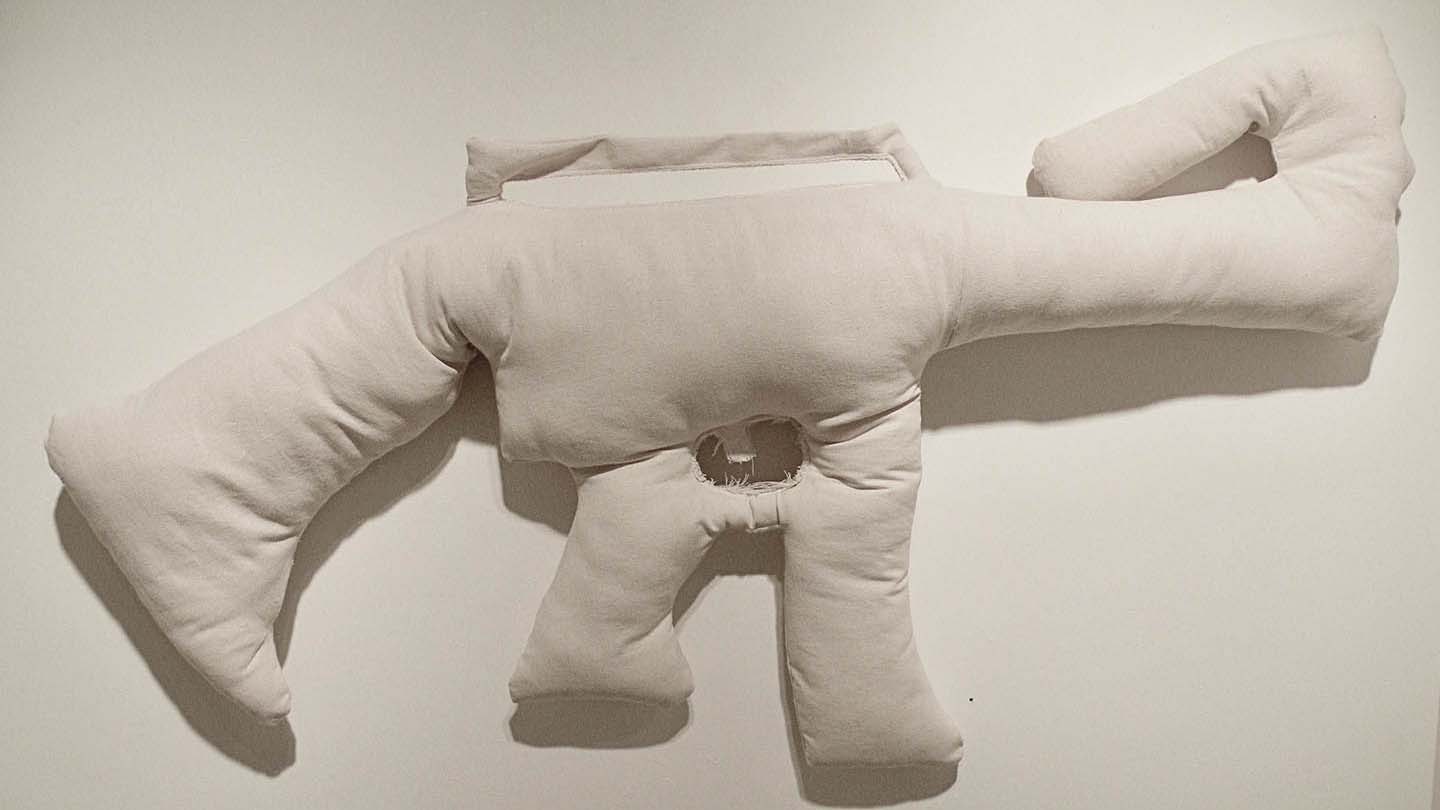The Supreme Court Has Ruled to Let Louisiana Keep Hunting DeRay McKesson
The court has decided to let the BLM activist be held liable for organizing a protest in 2016, endangering the right to dissent in three Southern states.
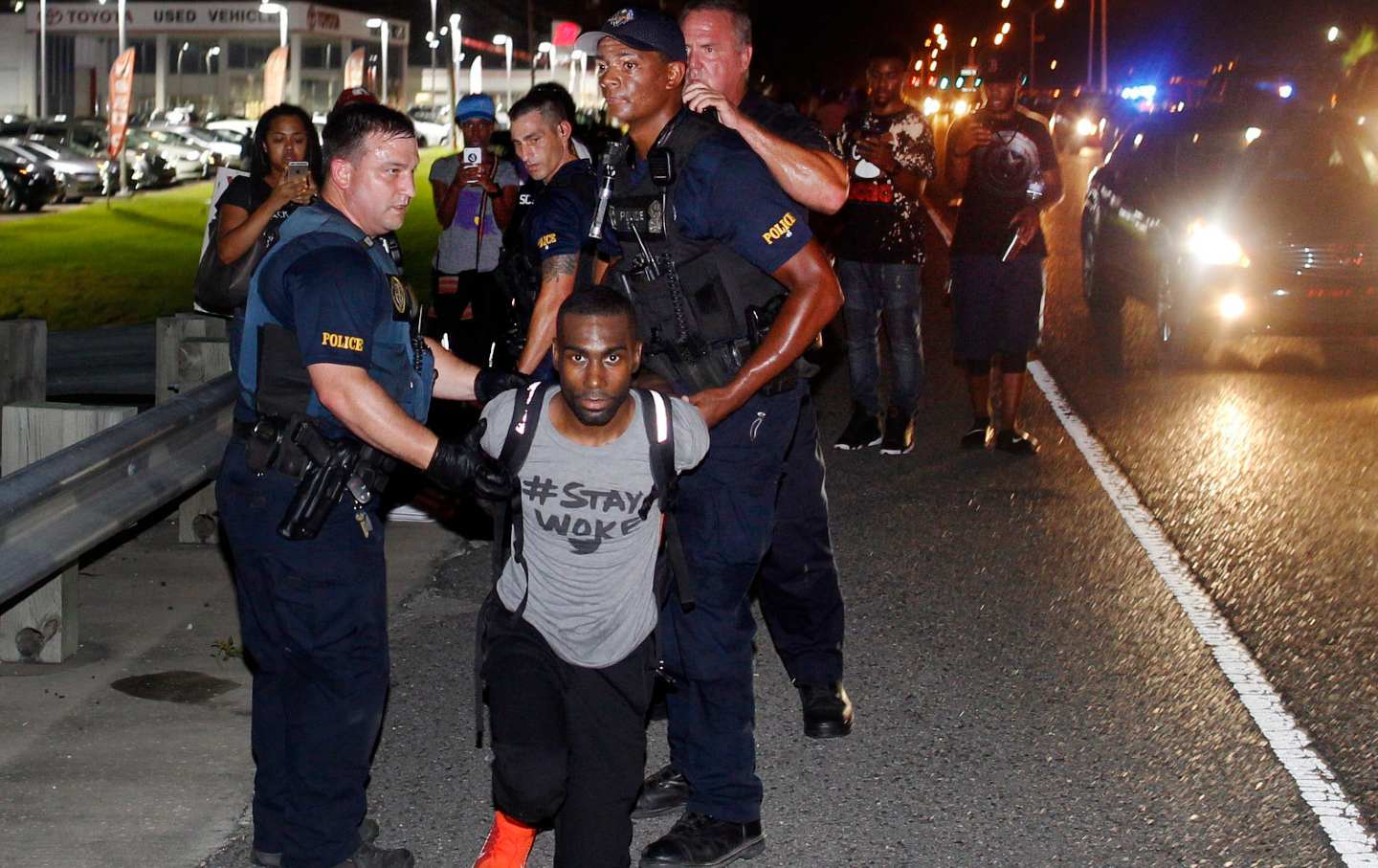
As Donald Trump appears in court this week for yet another trial—this time over his alleged hush money payments to actress Stormy Daniels and his attempts to cover the trail—it is common for white-wing sycophants to say Trump is being “persecuted.” He’s not, of course. Trump is being prosecuted for his various alleged crimes and misdeeds. If he’d like to be prosecuted less, my suggestion would be to stop committing so many crimes or things that look like crimes.
If you want to see somebody who is being persecuted, I suggest you look no further than DeRay McKesson. McKesson is an activist dedicated to ending police brutality. He’s been involved in the Black Lives Matter movement for nearly a decade, and for those efforts, he’s been relentlessly harassed by whites in the state of Louisiana and on the US Court of Appeals for the Fifth Circuit Court. Now, the Supreme Court has given the harassment its blessing.
In 2016, McKesson helped to organize a Black Lives Matter protest near the police headquarters in Baton Rouge, Louisiana, after the cops there murdered Alton Sterling, a 37-year-old Black man whom they shot six times, despite having pinned him to the ground and utterly immobilized him. During that protest, somebody threw a rock. That rock struck a police officer, severely injuring him.
Nobody knows who threw the rock. McKesson doesn’t know. I don’t know (though, if I did, I wouldn’t tell you, because I am too pretty for stitches). The rock-thrower has never been found. For all we know, the person who threw the rock wasn’t even aligned with the protesters: It could have been a counterprotester with poor aim throwing rocks at Black Lives Matter, or it could have been a false-flag person trying to incite violence to make the protesters look bad. Or it could have been a protester trying to throw rocks at the police. We don’t know.
Nevertheless, the police officer who was struck by the rock, who is known only as John Doe, sued McKesson for inciting a riot. McKesson neither had rocks, threw rocks, or told protesters to “come armed with rocks, just in case,” but McKesson is the one the police charged with a crime. By focusing on McKesson and not, you know, the rock-thrower, the somewhat obvious attempt here is to discourage people from protesting the police. McKesson has been fighting this lawsuit for seven years, incurring significant legal bills, while every other activist and organizer looks on to see if they’re next.
Intelligent readers might be asking, “But doesn’t the First Amendment protect your right to organize a protest?” And my answer to that is, “Sure, unless you’re Black.” McKesson moved to have the case against him dismissed on First Amendment grounds. For precedent, McKesson relied on a 1982 Supreme Court case called NAACP v. Claiborne. That case arose from one of the other times white folks have gotten mad at Black people for protesting. In 1966, the NAACP organized a boycott of white businesses in Claiborne County, Mississippi. In 1969, the business owners sued arguing that threats of violence against their businesses cost the white folks money. The business owners tried to hold the NAACP (which did not make threats of violence against the businesses) liable for the threats made by others.
The Supreme Court unanimously rejected the white business owners’ arguments—in 1982. What this meant is that he white business owners were able to hold this threat of liability over the NAACP for over a decade. When the free speech of Black people is on the line, suddenly the First Amendment is made of molasses.
That’s the situation McKesson is facing now. After a lot of procedural back-and-forth between the Louisiana state court, the Fifth Circuit Court of Appeals, and the Supreme Court, the Fifth Circuit eventually rejected many of John Doe’s claims against McKesson (like the completely unsupported claim that McKesson colluded with the rock-thrower who, again, nobody freaking knows). But the court left one claim intact: that McKesson was negligent in organizing a protest near a police station and thus should have been aware that violence was likely. McKesson appealed that ruling too, but on Monday, the Supreme Court declined to hear his appeal.
We know this new standard the Supreme Court declined to abolish—the idea that protesting near a place that makes people angry is inherently negligent—is one that is intended to only be applied to Black people. We know that because of Donald Trump. Unlike McKesson, Trump did arguably try to incite a violent riot at the Capitol on January 6. His rioters injured many people, including police officers. Officers like Michael Fanone who were savagely beaten by pro-Trump forces on that day did not sue Trump for damages, because they couldn’t. Under the First Amendment, or at least the First Amendment as it is applied to white people, Trump’s actions were not the cause of the officers’ injuries. Trump, for all the things he did say, did not say “beat some officers to death.” What Trump is being charged for on January 6 is obstruction of Congress, not negligently inciting a riot. That’s despite the fact that he is far more culpable for the injuries suffered on January 6 than McKesson is for anything that happened in Louisiana.
If the obvious racism of the Fifth Circuit ruling—and the Supreme Court’s decisions to let it stand—doesn’t outrage you, perhaps the raw stupidity of this standard will. As Judge Don Willet pointed out in his dissent from the Fifth Circuit’s ruling, under this new standard anybody can show up at a protest they disagree with, cause some violence, and wait for the protest’s organizers to be sued into oblivion. I could go to a Trump rally, sling some rocks around, and wait for Trump to be sued by injured rally-goers. Or Steve Bannon could go to a Joe Biden rally swinging empty gin bottles around until someone sued the president. The standard is simply chaotic. No protest organizer can be responsible for every single thing a protester does, or prevent people who are actively hostile to the cause from showing up and wreaking havoc.
The upshot of this new standard is to essentially end the right to organized protests in the three states covered by the Fifth Circuit ruling: Louisiana, Mississippi, and Texas. I don’t think I’m breaking news here to say that protest organizers are generally not the most well-subsidized people. If organizers and activists are on the hook for everything done in their name, including things done by people who are potentially trying to undermine their organizations, then they simply cannot organize protests.
That reality might be exactly what white folks in Louisiana are looking for, but I think the Supreme Court will eventually put a stop to it. In theory, at least, this standard can be used against white protesters as easily as it can be against Black people, so the court is likely to overturn it. Someday. Eventually. After McKesson is tried in Louisiana, appeals the ruling, exhausts his finances, and has been distracted from his mission for a decade by this facially ridiculous infringement on his First Amendment rights, the Supreme Court will finally overrule the standard he is being persecuted under.
Popular
“swipe left below to view more authors”Swipe →As Toni Morrison says: “The function, the very serious function of racism is distraction. It keeps you from doing your work.” The point of these racist decisions from Louisiana, the Fifth Circuit, and the Supreme Court is to keep McKesson, Black Lives Matter, activists, organizers, and all those who oppose police brutality distracted from the serious work at hand.
I can prove that. The officers who shot Alton Sterling six times while he was face down are named Blane Salamoni and Howie Lake II. Neither of them were charged with a crime. An investigation by Louisiana Attorney General Jeff Landry found that the officers acted “reasonably” while killing a Black man who had been pinned to the ground. Both of the officers were eventually fired from the force, but one of them, Salamoni, appealed his dismissal, won, and was allowed to retire instead of being fired. The Department of Justice, under then–Attorney General Jeff Sessions, declined to bring charges against the officers or the Louisiana Police Department. The Sterling family quietly settled their wrongful death suit against the city of Baton Rouge for $4.5 million in 2021.
The only person still being held accountable in connection with the death of Alton Sterling is… DeRay McKesson.
Thank you for reading The Nation!
We hope you enjoyed the story you just read, just one of the many incisive, deeply-reported articles we publish daily. Now more than ever, we need fearless journalism that shifts the needle on important issues, uncovers malfeasance and corruption, and uplifts voices and perspectives that often go unheard in mainstream media.
Throughout this critical election year and a time of media austerity and renewed campus activism and rising labor organizing, independent journalism that gets to the heart of the matter is more critical than ever before. Donate right now and help us hold the powerful accountable, shine a light on issues that would otherwise be swept under the rug, and build a more just and equitable future.
For nearly 160 years, The Nation has stood for truth, justice, and moral clarity. As a reader-supported publication, we are not beholden to the whims of advertisers or a corporate owner. But it does take financial resources to report on stories that may take weeks or months to properly investigate, thoroughly edit and fact-check articles, and get our stories into the hands of readers.
Donate today and stand with us for a better future. Thank you for being a supporter of independent journalism.
Thank you for your generosity.
More from The Nation
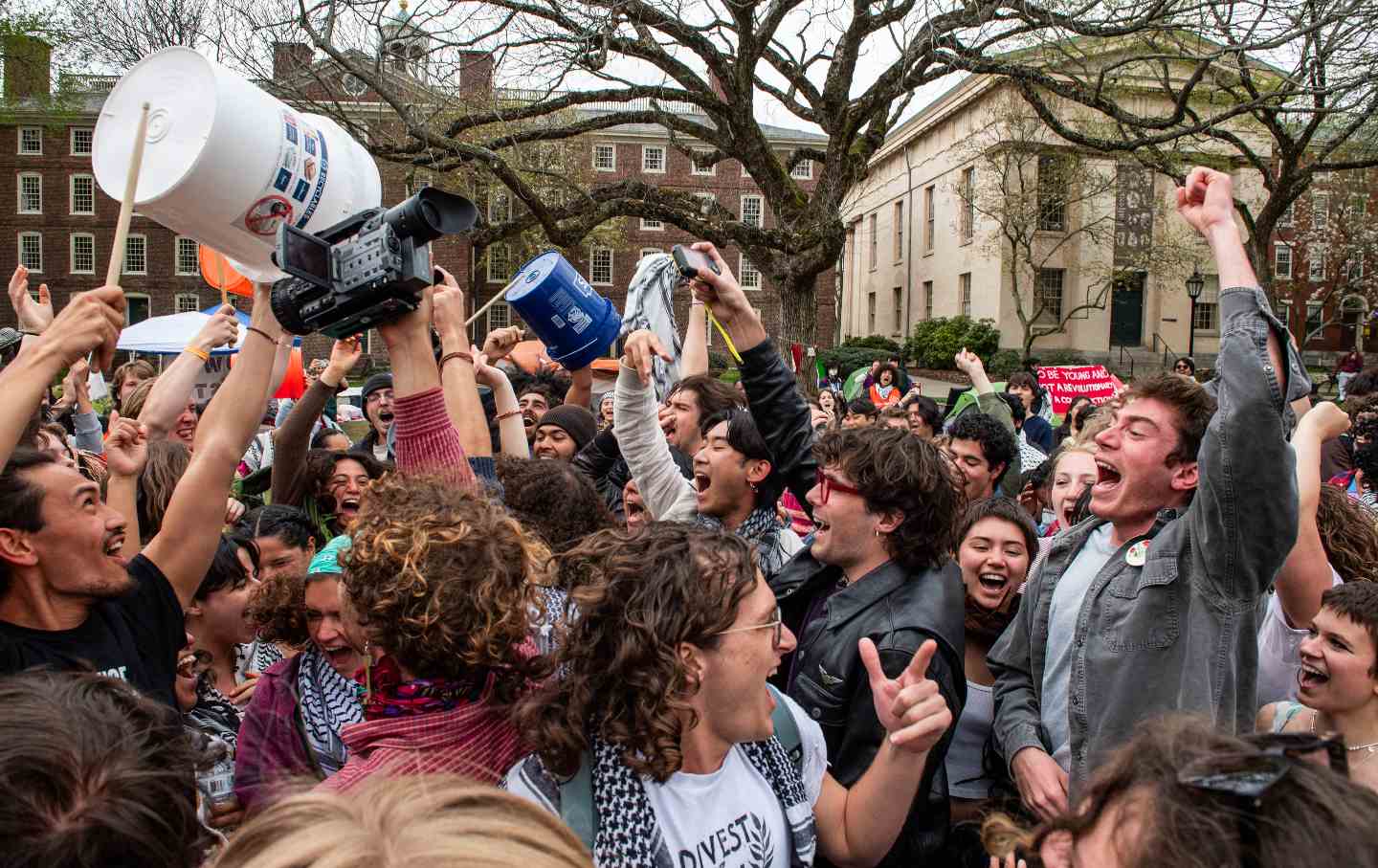
Students at Brown Just Secured a Vote on Divestment. What Happens Next? Students at Brown Just Secured a Vote on Divestment. What Happens Next?
On April 30, protesters disbanded their encampment when the university pledged to vote on divestment from companies affiliated with Israel. This shows a different way of doing thi...
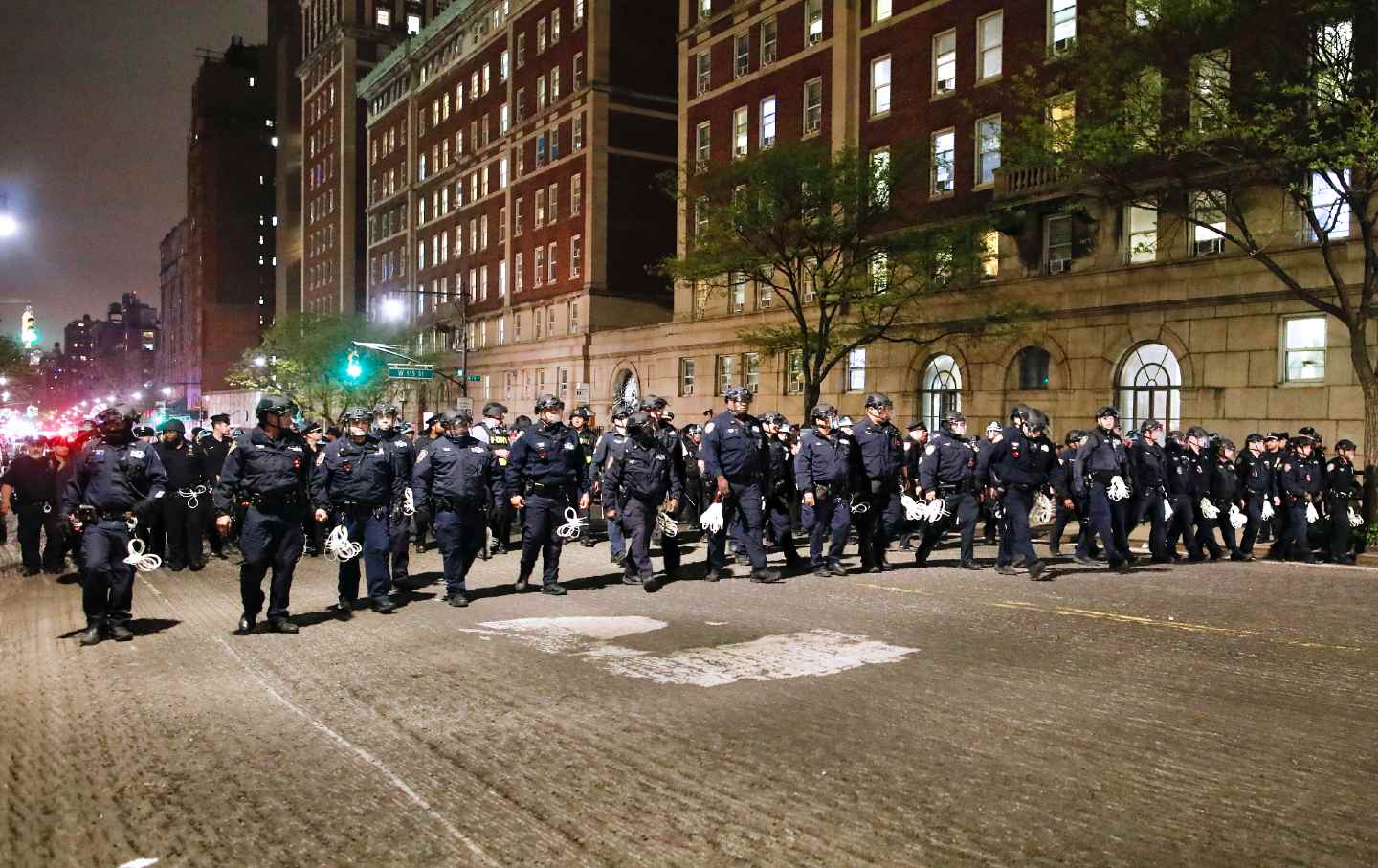
This Is How Power Protects Itself This Is How Power Protects Itself
The decision to sic the police on peaceful protesters is evidence that people in charge are panicking. They’re terrified of the strength of the movement for Palestine.
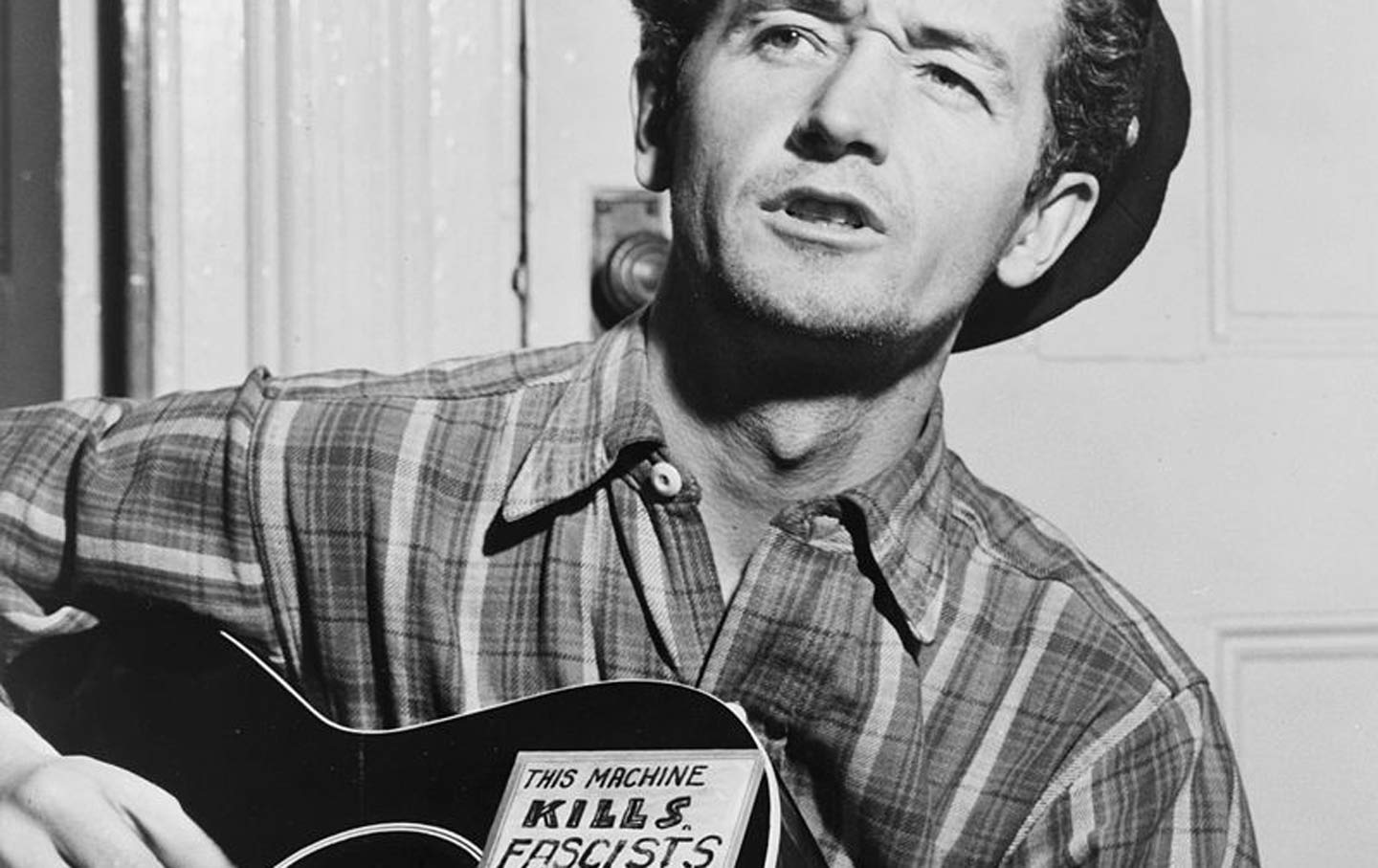
Top 12 May Day Songs Top 12 May Day Songs
In tribute to all those planning actions for May Day.
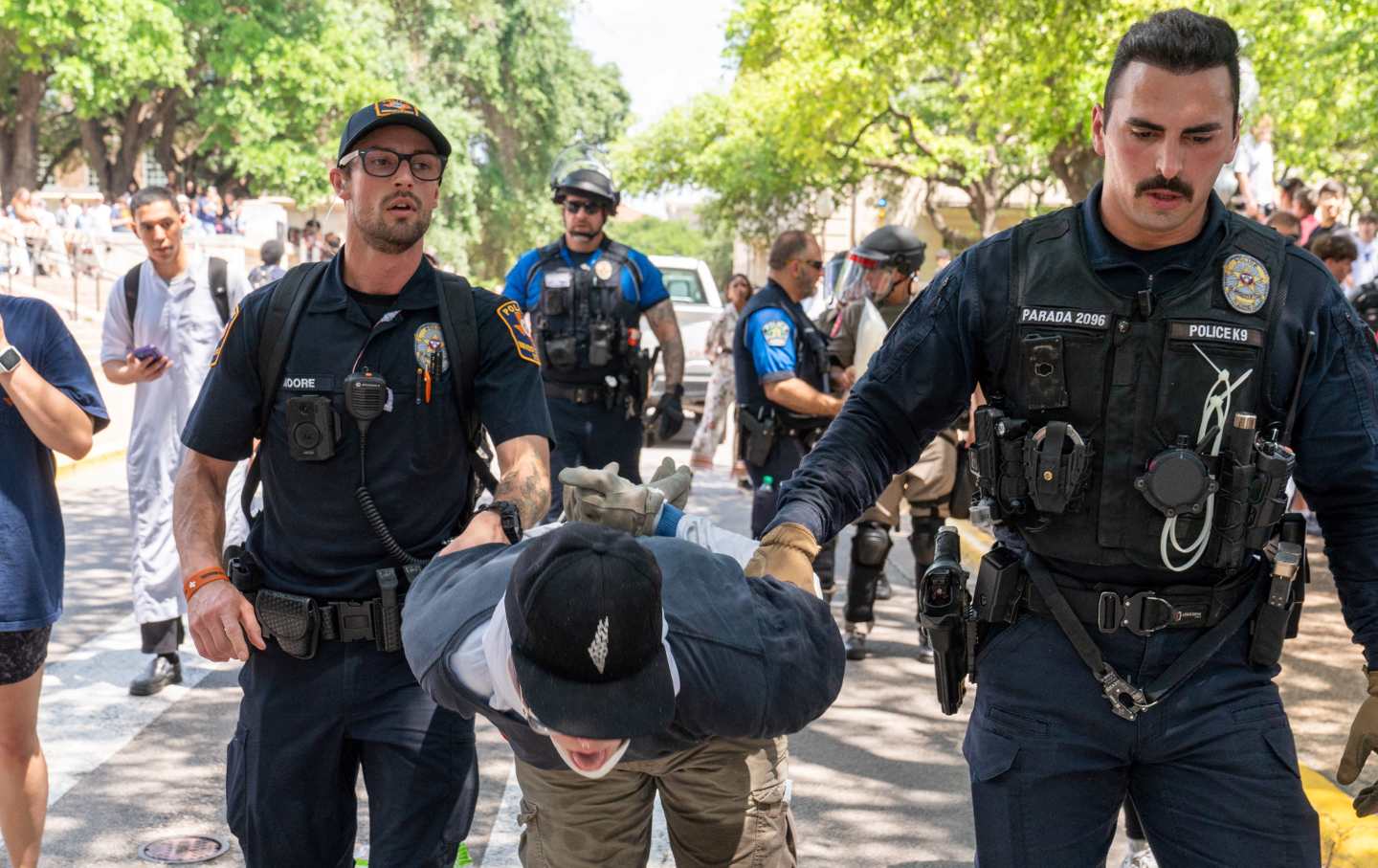
The Student Crackdown Didn’t Start Last Week. Months of Repression Got Us Here. The Student Crackdown Didn’t Start Last Week. Months of Repression Got Us Here.
We are witnessing the culmination of a months-long effort by universities to smother pro-Palestinian activism.
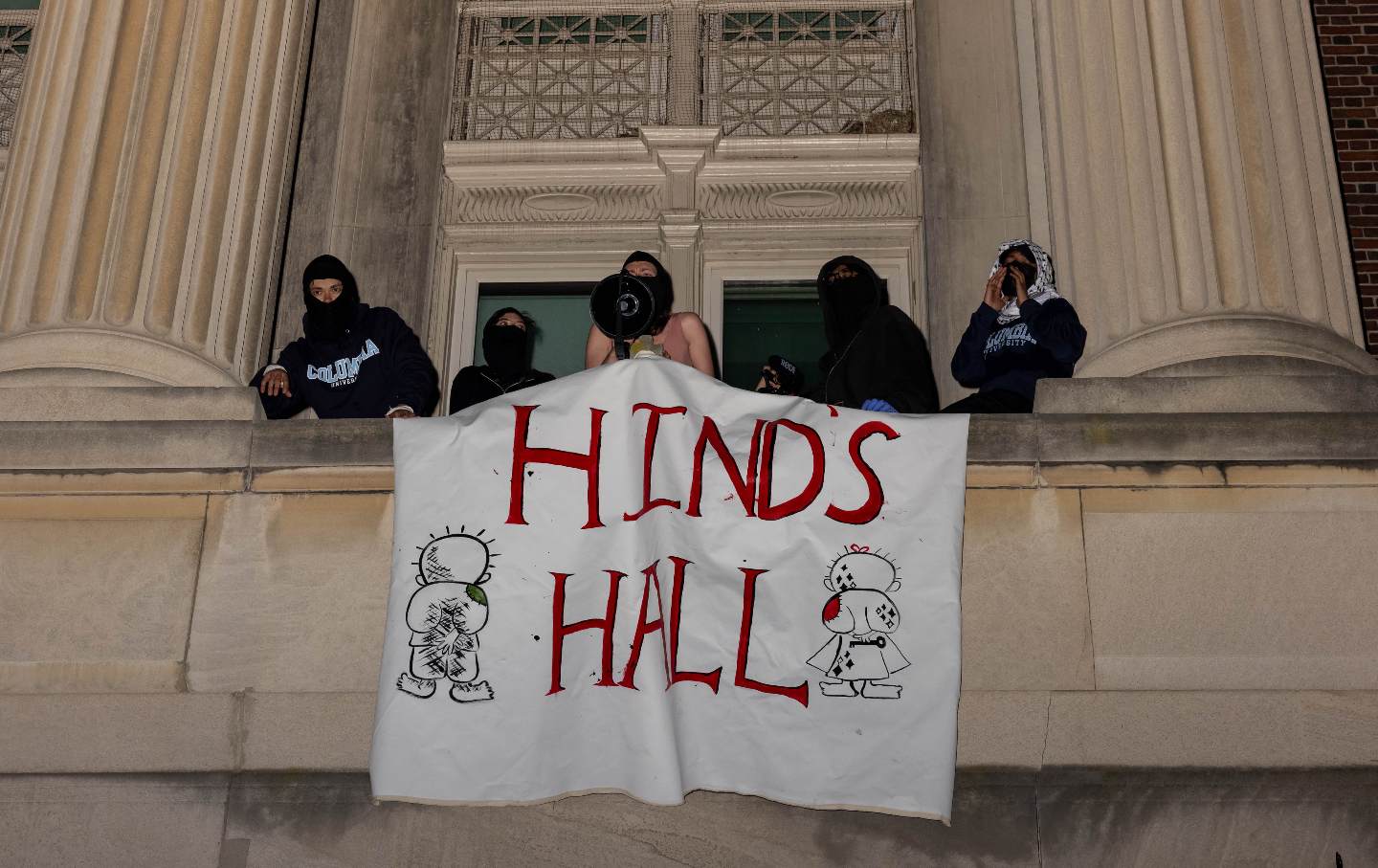
Why Students at Columbia University Are Occupying Hamilton Hall Why Students at Columbia University Are Occupying Hamilton Hall
Pro-Palestine students have taken over the same building that anti-Vietnam War and anti-gentrification protesters occupied in 1968.

